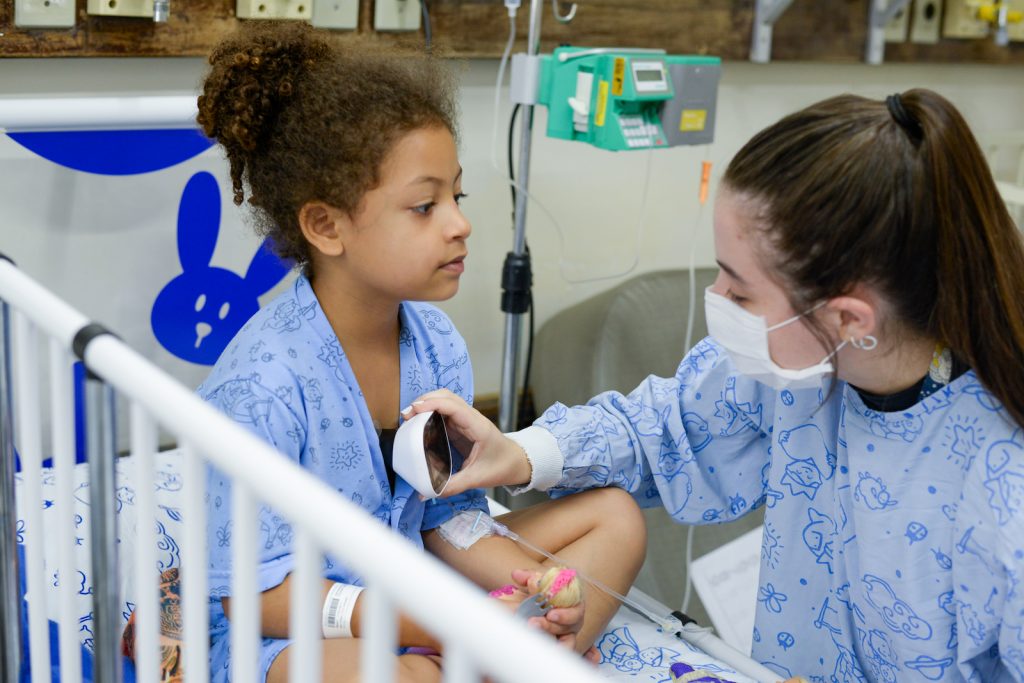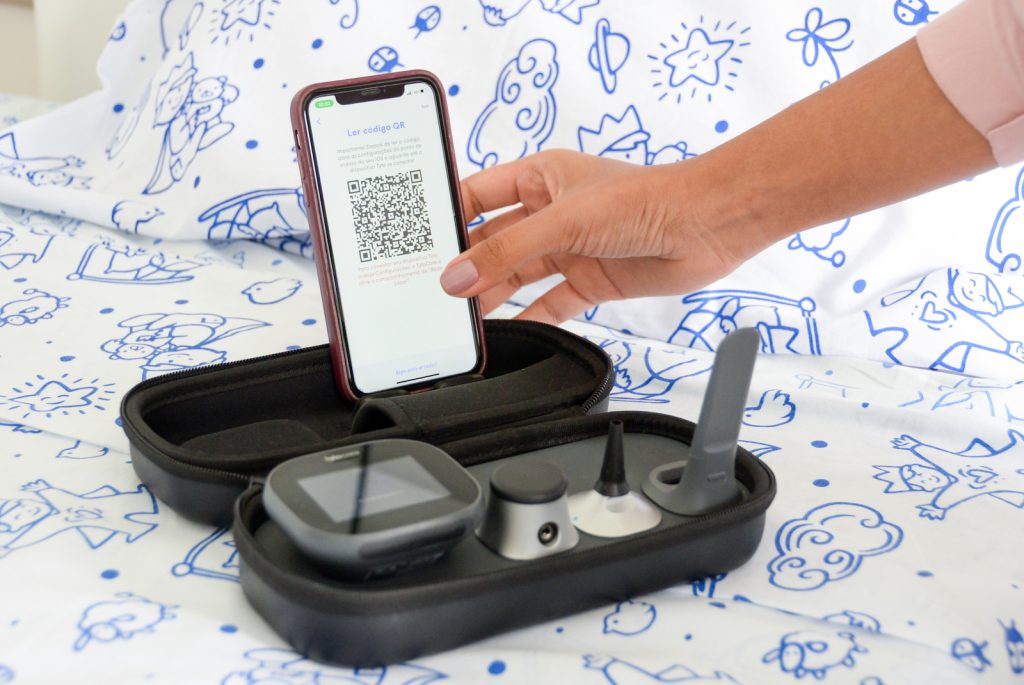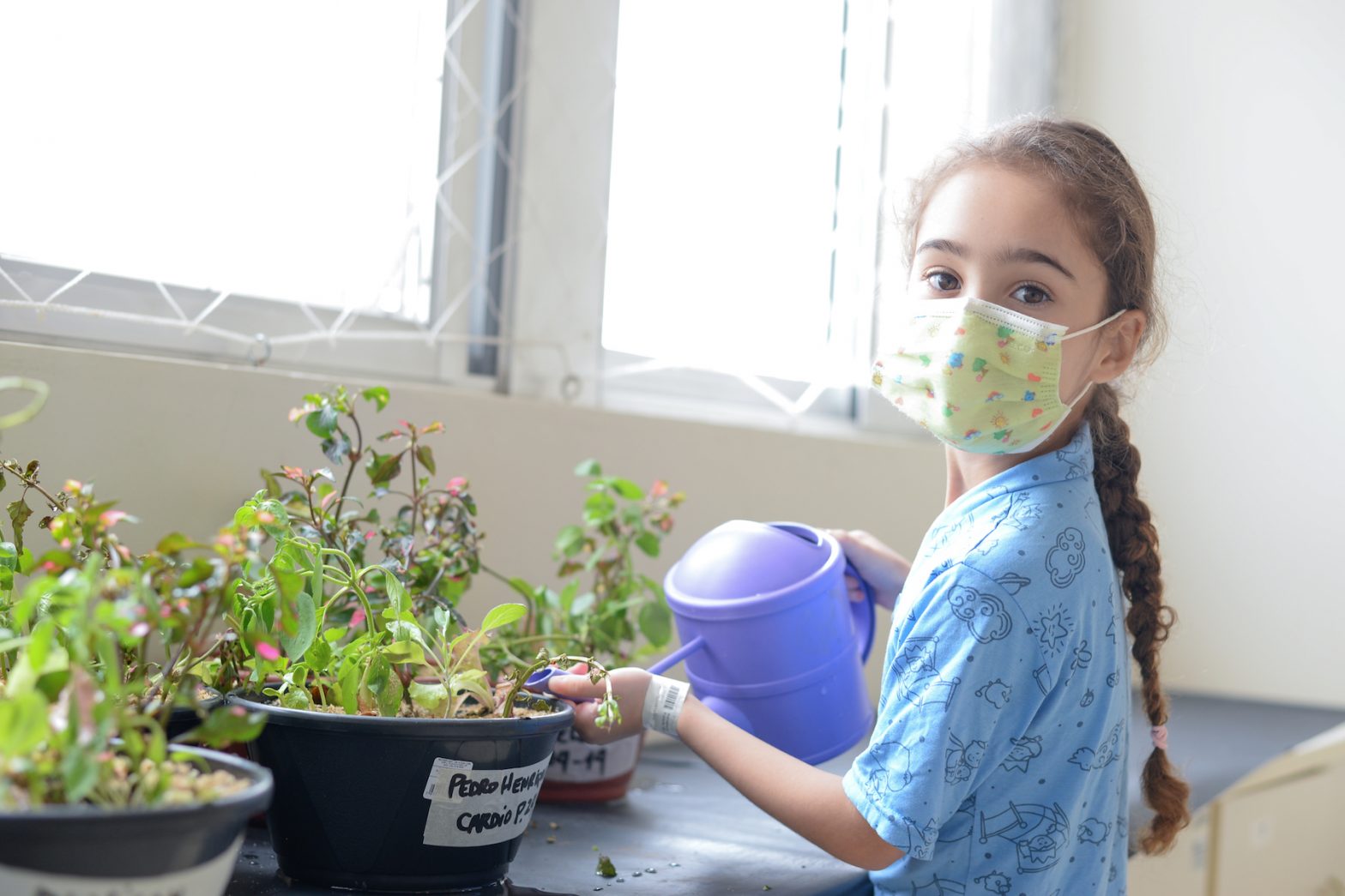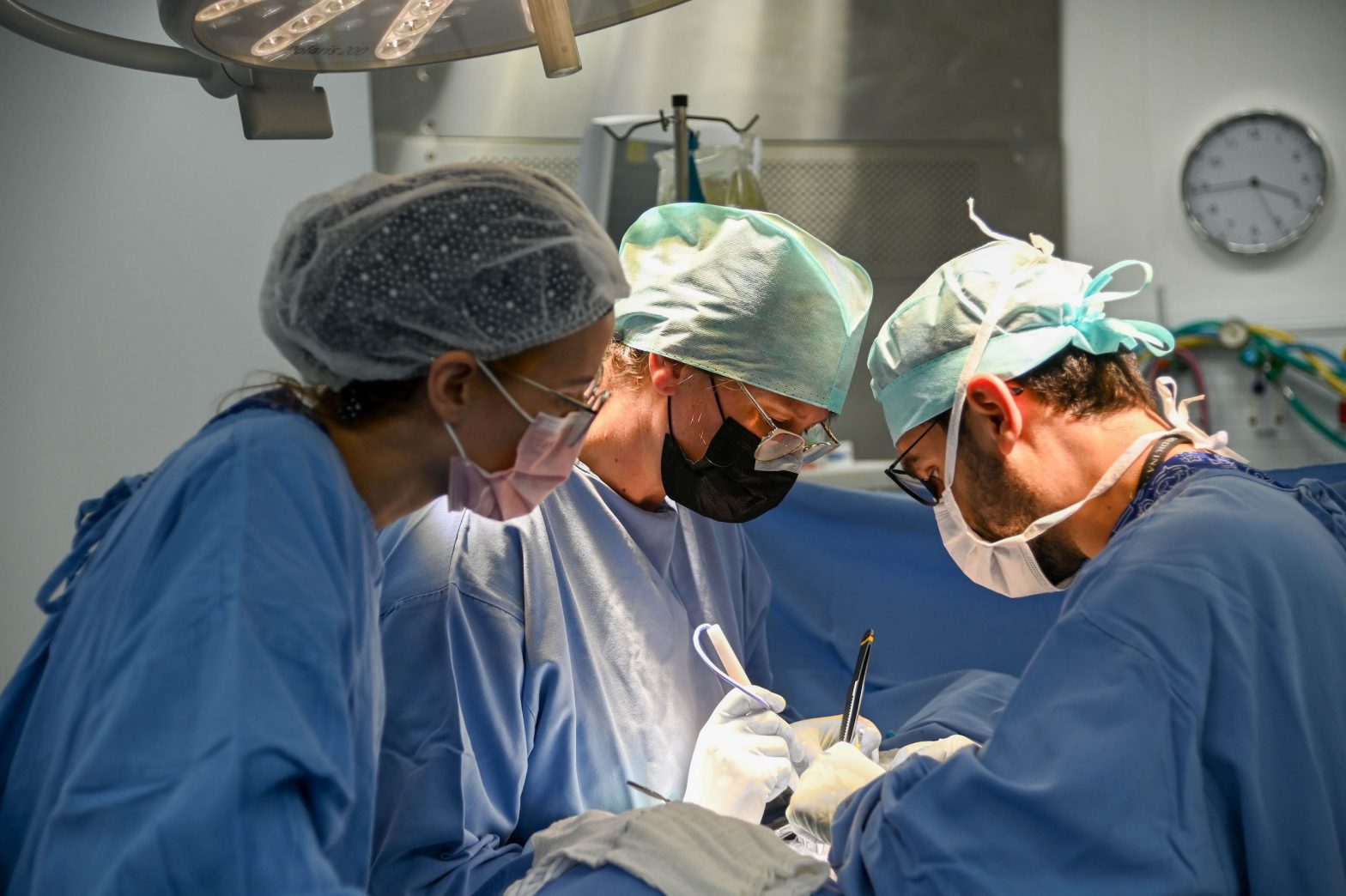Pequeno Príncipe coordinates the largest research in Brazil in telepediatrics
The study concluded that the portable device TytoCare is a safe tool for the on-line healthcare of children and adolescents
In 2020, Pequeno Príncipe Hospital brought to Brazil the Israeli technology TytoCare – a small portable device in which the physician can check patient signals from a distance. The technology was already used in adults, and upon its advent in Brazil, it was necessary to scientifically verify the effectiveness of the device in the care of children and adolescents. As a result, the largest Brazilian research to validate technology to support telepediatrics was launched.

Carried out by Pequeno Príncipe Hospital in partnership with Pensi Institute (Research and Teaching in Child Health) and Sabará Children’s Hospital, in São Paulo, the survey involved more than 650 patients. In order to elaborate the study, the institutions provided online and in-person care, and compared results. The conclusion was that the TytoCare is a safe tool for the healthcare of children and adolescents. The research was published in the JAMA Network Open, a leading medical journal published by the American Medical Association.
How was the research done?
The stable patient was admitted to the emergency room and, after risk classification, first received remote assistance with the mobile device. The doctor filled out a form with the data obtained and, subsequently, the child underwent the conventional consultation, in which the physical examinations were performed in-person and recorded. Afterwards, the data were crossed to see if the result was compatible and comparable. The study proved that it is possible to use the technology safely and reliably for patients and providers who perform telecare.
What is TytoCare technology?

TytoCare is a small portable device that allows you to perform exams remotely. The device is accompanied by an application that guides the performance of these tests at home and transmits the data in real time to a center, that can be accessed remotely by medical doctors. The following exams can be performed with TytoCare:
- listening for heartbeats;
- heart rate;
- otoscopy (evaluation of the inside of the ear);
- oropharyngeal exams (throat exam);
- lung auscultation;
- abdominal sounds;
- high resolution skin images; and
- body temperature.
Why is this research important?
When the issue is about innovation in health, there is a paradigm that is being discussed very strongly, mainly in the field of ethics, research, and bioethics. How much innovation can be brought without studies that validate the reliability and the safety for patients? “We know that there are many devices on the market that do not undergo this type of validation and regulatory assessments, which is very questionable. The damage can be great if we use technology to take care of people without the adequate validation,” explains the coordinator of the Telehealth Service of Pequeno Príncipe, the physician Rafaela Wagner.
The assistant technical director of Quality and Clinical Research at Pequeno Príncipe, Fábio de Araújo Motta, who coordinated the research, emphasizes: “The Hospital has a social commitment to pediatric patient safety and is therefore concerned with sponsoring research such as this one, which validates a device of such relevance for the care of children.”
More
Pequeno Príncipe wins 2022 Climate Challenge Award
Among the 50 awarded organizations, only seven are Brazilian. Hospital was recognized in the Climate Resilience category
In 20 days, Pequeno Príncipe Hospital performs seven kidney transplants
Number of procedures depicts the institution’s structure and the technical ability of its teams to handle highly complex cases








